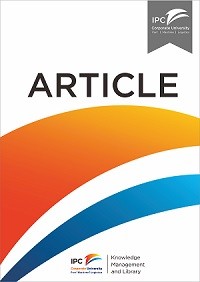Article
Indonesia port sector reform and the 2008 shipping law
For an archipelago nation such as Indonesia, an efficient and well run sea freight transport system is a crucial element of economic competitiveness as well as national integrity. Indonesia has relatively high sea transport costs and this reduces incentives to trade both domestically and internationally. Indonesia’s ports, regarded as relatively inefficient and poorly equipped/managed, are an important factor driving up shipping costs. Vessels involved in domestic trade for example, are spending over half their time sitting idle or waiting at or outside ports. Poor port performance can be explained in large part by the long held legislated monopoly of port services by state-owned enterprises (SOEs) and the current legal and regulatory environment that effectively constrains competition both within and among ports. The 2008 Shipping Law provides the foundation for a comprehensive reform of the Indonesian port system. Most notably the law removes the state-sector monopoly on ports and opens the door for new participation by the private sector. This could lead to the injection of much needed competition in the ports system, putting downward pressure on prices and driving general improvements in port services. Whilst there is some guarded optimism about the new law, investors must now confront a policy vacuum whilst awaiting the development of implementing regulations and supporting institutions.
Ketersediaan
Informasi Detail
- Judul Seri
-
-
- No. Panggil
-
ATC PO USA i
- Penerbit
- United States of America : USAID., 2008
- Deskripsi Fisik
-
25 p .
- Bahasa
-
Indonesia
- ISBN/ISSN
-
-
- Klasifikasi
-
PO
- Tipe Isi
-
-
- Tipe Media
-
-
- Tipe Pembawa
-
online resource
- Edisi
-
-
- Subjek
- Info Detail Spesifik
-
-
- Pernyataan Tanggungjawab
-
USAID
Versi lain/terkait
| Judul | Edisi | Bahasa |
|---|---|---|
| The law and partice relating to oil pollution from ships | en | |
| Business and law the shipmaster | en |
Lampiran Berkas
Komentar
Anda harus masuk sebelum memberikan komentar

 Karya Umum
Karya Umum  Filsafat
Filsafat  Agama
Agama  Ilmu-ilmu Sosial
Ilmu-ilmu Sosial  Bahasa
Bahasa  Ilmu-ilmu Murni
Ilmu-ilmu Murni  Ilmu-ilmu Terapan
Ilmu-ilmu Terapan  Kesenian, Hiburan, dan Olahraga
Kesenian, Hiburan, dan Olahraga  Kesusastraan
Kesusastraan  Geografi dan Sejarah
Geografi dan Sejarah